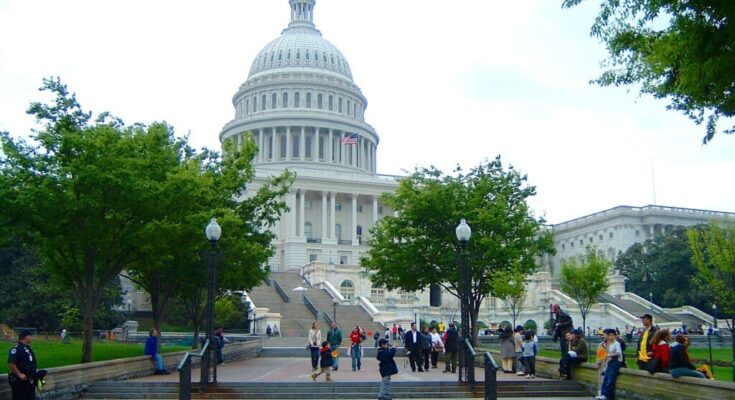
The American Presidential Election is only a few days away, with the entire world waiting anxiously the result, however, why do they take place on a Tuesday and not on a Sunday?
Every four years, the United States holds its crucial presidential election on the first Tuesday following the first Monday in November.
This tradition has been in place for almost two centuries, since 1845. Back then, U.S. Congress established a uniform national Election Day that would come into effect across the country.
But why was Tuesday chosen, and why in November?
The Agricultural Society of 19th Century America
In the 1800s, the United States was completely different to what we know today. The U.S. was primarily an agricultural society, with most of its citizens working as farmers in the vast lands of this beautiful corner of the earth.
This agricultural lifestyle played a significant role in determining the timing of elections, as American politicians had to think about the needs of the majority of their citizens.
The U.S. Congress chose the month of November for the American Presidential election because it fell after the busy harvest season but also before the harsh winter weather set in.
Early November, therefore, was seen as the most convenient time for the vast majority of the nation’s rural voters to participate in the crucial elections. Holding elections in early November also allowed farmers to travel to polling stations without interfering with their agricultural duties, as any other part of the year would be almost impossible for them to do so.
Why American Presidential Elections don’t take place on a Sunday?
In modern times, many people question why the American Presidential elections are held on a Tuesday rather than on a Sunday or a full weekend when more people would be available to vote.
The vast majority of European countries use Sunday as their polling day, taking advantage of the fact that most people are off work on that day.
However, in the 19th century, weekends were not suitable for elections.
Sundays were set aside for the all-important visit to church. After attending liturgies and masses, the typical American would then go home to enjoy a family get-together, a beautiful meal and then have a much-needed rest, following a busy week in the farm. This is what made Sundays particularly inappropriate time for voting.
Monday was very often a day of travel, as many people lived far from polling places and needed time to make the journey, so Tuesday seemed as the ideal solution.
The significance of the first Tuesday after the first Monday
The American Congress specifically chose the first Tuesday after the first Monday in November for a very important reason.
The representatives of the American people tried to avoid potential conflicts with other important dates in the calendar.
November 1 was All Saints’ Day for Catholics and some Protestant Christians, making it a very important religious celebration, that would make it impossible for them to vote.
November 1st was also a day when merchants traditionally settled their books for the previous month, making it one of the busiest days of the month for them.
By holding elections on the Tuesday after the first Monday, Congress ensured that Election Day would never fall on November 1.
Before the establishment of a uniform Election Day, each U.S. state could choose its own voting date within a 34-day period before the first Wednesday in December.
However, as communications and technology improved, there were concerns that early voting results in some states could influence voter turnout and opinions in states with later elections, something that was deemed as unfair.
The creation of a national Election Day that would be adhered by every state aimed to address these issues and ensure a fairer, more stable voting process across the country.
While the Tuesday Election Day made sense in the 19th century, it has become less practical in modern times. With fewer Americans working in agriculture and many people finding it difficult to vote on a weekday, there have been discussions about changing Election Day or providing more flexible voting options.
Some people have proposed moving the American Presidential elections to the weekend or making Election Day a federal holiday to improve accessibility for all voters, who can’t vote because of work commitments. Despite these debates, the tradition of voting on the first Tuesday after the first Monday in November remains an integral part of the American electoral process and is probably here to stay.



